Potrebujeme váš súhlas na využitie jednotlivých dát, aby sa vám okrem iného mohli ukazovať informácie týkajúce sa vašich záujmov. Súhlas udelíte kliknutím na tlačidlo „OK“.
ASTM D7152-11
Standard Practice for Calculating Viscosity of a Blend of Petroleum Products
Automaticky preložený názov:
Štandardné praktiky pre výpočet viskozity zmesi ropných produktov
NORMA vydaná dňa 1.1.2011
Informácie o norme:
Označenie normy: ASTM D7152-11
Poznámka: NEPLATNÁ
Dátum vydania normy: 1.1.2011
Kód tovaru: NS-37692
Počet strán: 9
Približná hmotnosť: 27 g (0.06 libier)
Krajina: Americká technická norma
Kategória: Technické normy ASTM
Kategórie - podobné normy:
Anotácia textu normy ASTM D7152-11 :
Keywords:
blending, kinematic viscosity, MacCoull, viscosity, Wright, Flow properties, Kinematic viscosity, Petroleum blending operations, Petroleum products, ICS Number Code 75.080 (Petroleum products in general)
Doplňujúce informácie
| Significance and Use | ||||||||
|
Predicting the viscosity of a blend of components is a common problem. Both the Wright Blending Method and the ASTM Blending Method, described in this practice, may be used to solve this problem. The inverse problem, predicating the required blend fractions of components to meet a specified viscosity at a given temperature may also be solved using either the Inverse Wright Blending Method or the Inverse ASTM Blending Method. The Wright Blending Methods are generally preferred since they have a firmer basis in theory, and are more accurate. The Wright Blending Methods require component viscosities to be known at two temperatures. The ASTM Blending Methods are mathematically simpler and may be used when viscosities are known at a single temperature. Although this practice was developed using kinematic viscosity and volume fraction of each component, the dynamic viscosity or mass fraction, or both, may be used instead with minimal error if the densities of the components do not differ greatly. For fuel blends, it was found that viscosity blending using mass fractions gave more accurate results. For base stock blends, there was no significant difference between mass fraction and volume fraction calculations. The calculations described in this practice have been computerized as a spreadsheet and are available as an adjunct. |
||||||||
| 1. Scope | ||||||||
|
1.1 This practice covers the procedures for calculating the estimated kinematic viscosity of a blend of two or more petroleum products, such as lubricating oil base stocks, fuel components, residua with kerosine, crude oils, and related products, from their kinematic viscosities and blend fractions. 1.2 This practice allows for the estimation of the fraction of each of two petroleum products needed to prepare a blend meeting a specific viscosity. 1.3 This practice may not be applicable to other types of products, or to materials which exhibit strong non-Newtonian properties, such as viscosity index improvers, additive packages, and products containing particulates. 1.4 The values stated in SI units are to be regarded as standard. No other units of measurement are included in this standard. 1.5 Logarithms may be either common logarithms or natural logarithms, as long as the same are used consistently. This practice uses common logarithms. If natural logarithms are used, the inverse function, exp(×), must be used in place of the base 10 exponential function, 10×, used herein. 1.6 This standard does not purport to address all of the safety concerns, if any, associated with its use. It is the responsibility of the user of this standard to establish appropriate safety and health practices and to determine the applicability of regulatory limitations prior to use. |
||||||||
| 2. Referenced Documents | ||||||||
|
Podobné normy:
Historická
15.6.2013
Historická
1.5.2014
Historická
15.4.2012
Historická
1.12.2013
Historická
1.7.2010
Historická
1.5.2010
Odporúčame:
Aktualizácia technických noriem
Chcete mať istotu, že používate len platné technické normy?
Ponúkame Vám riešenie, ktoré Vám zaistí mesačný prehľad o aktuálnosti noriem, ktoré používate.
Chcete vedieť viac informácií ? Pozrite sa na túto stránku.


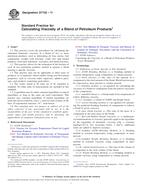
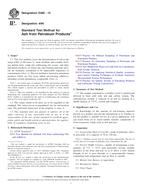 ASTM D482-13
ASTM D482-13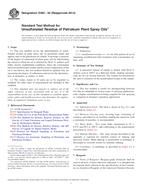 ASTM D483-04(2014)..
ASTM D483-04(2014)..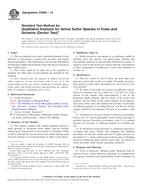 ASTM D4952-12
ASTM D4952-12 ASTM D5191-13
ASTM D5191-13 ASTM D524-10
ASTM D524-10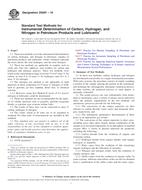 ASTM D5291-10
ASTM D5291-10
 Cookies
Cookies
